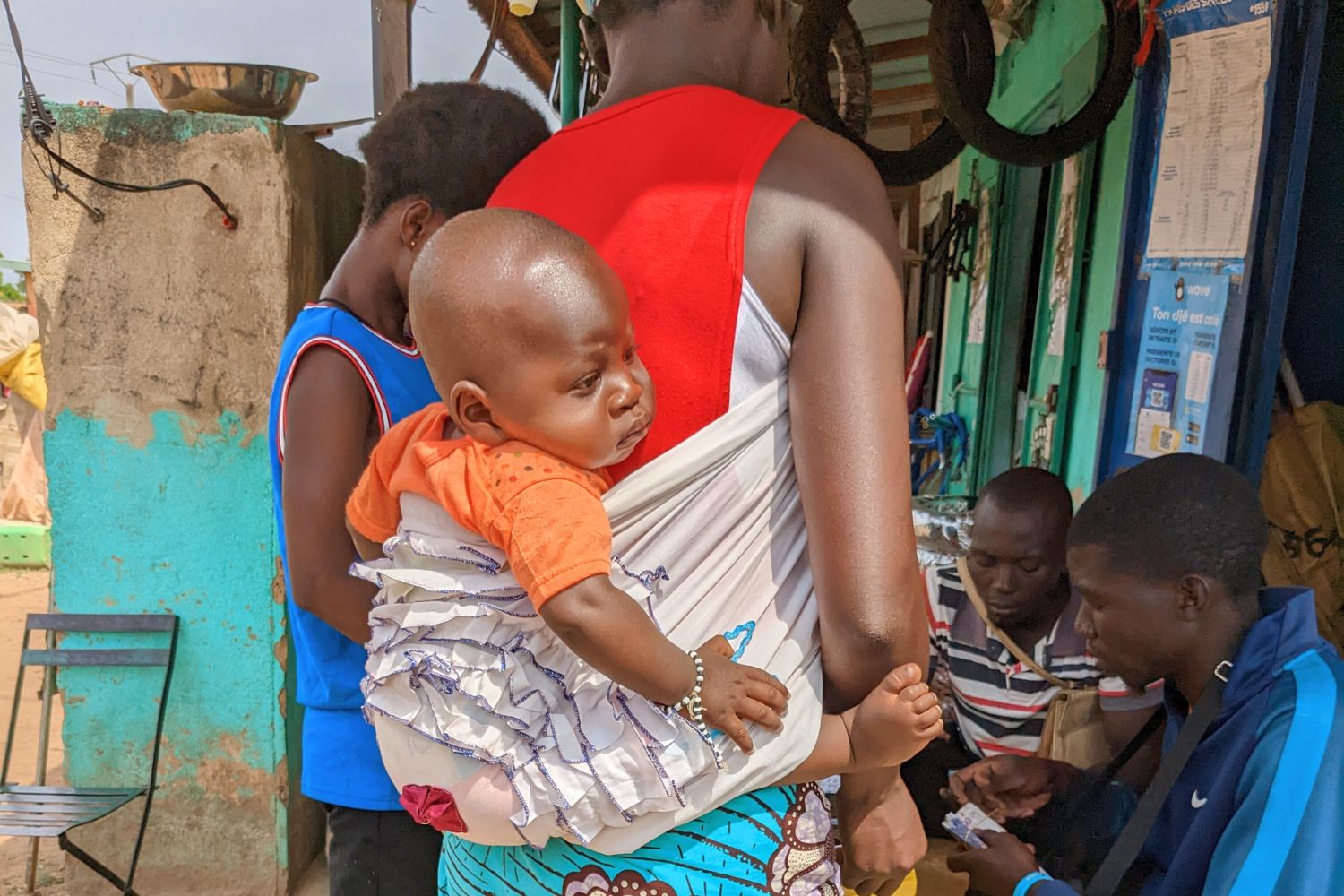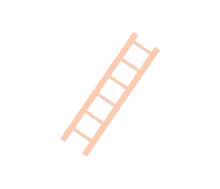Image

Prep Vocab
Dialog
Audio file
SITUATION: The neighbor stops by Abi's family's courtyard. She ends up chatting with him and asks about his family.
ABI: Muso b'i bolo? [1]
SIGIƝƆGƆN: Ɔwɔ. N ye muso furu, à mɛɛnna dɔɔnin. [2]
ABI: Den b'aw fɛ?
SIGIƝƆGƆN: Ɔwɔ. Den fila. Cɛ kelen, muso kelen.
ABI: Aw denmuso si ye san joli ye? [3]
SIGIƝƆGƆN: N denmuso bɛ san tan ni wɔɔrɔ la. [4]
ABI: Aw denkɛ si ye san joli ye?
SIGIƝƆGƆN: Mugan.
ABI: Sanji joli b'i yɛrɛ bolo?
SIGIƝƆGƆN: N kɔrɔla dɛ!
ABI: Do you have a wife? [1]
SIGIƝƆGƆN: Yes. I married a woman a while back. [2]
ABI: Do you all have a child?
SIGIƝƆGƆN: Yes. Two children. One "man", one "woman".
ABI: How old is your all's daughter? [3]
SIGIƝƆGƆN: My daughter's age is sixteen years. [4]
ABI: How old is your son?
SIGIƝƆGƆN: Twenty.
ABI: How many years do you yourself have?
SIGIƝƆGƆN: I am old, man!
SIGIƝƆGƆN: Yes. I married a woman a while back. [2]
ABI: Do you all have a child?
SIGIƝƆGƆN: Yes. Two children. One "man", one "woman".
ABI: How old is your all's daughter? [3]
SIGIƝƆGƆN: My daughter's age is sixteen years. [4]
ABI: How old is your son?
SIGIƝƆGƆN: Twenty.
ABI: How many years do you yourself have?
SIGIƝƆGƆN: I am old, man!
Grammar Points
- 1) Possession with
bolo,fɛ, etc - 2) Expressing "a long time ago" with
ka mɛɛn - 3) Talking about age
- 4) Counting above 10
Lesson
[Video coming soon!]
Vocab
- bolo
- arm/hand
- fɛ
-
at the place of [cf. Fr. chez]
- denmuso
- daughter [lit. "child-woman"]
- denkɛ/dencɛ
- son [lit. "child-man"]
- si
- lifespan; age
- san
- year
- X bɛ n bolo
- I have X [roughly, "X is on my hand"]
- X bɛ n fɛ
- I have X [roughly, "X is with me"]
- X tɛ n kun
- I don't have X on me [lit. "X isn't on my head"]
- Kunsigi tɛ cɛkɔrɔba la
- The old man doesn't have hair
- ka mɛɛn
- to last [Fr. "durer"]
- À mɛɛna!
- It's been a while! [Lit. "It has lasted!"]
- N mɛɛnna ka i ye!
- I haven't see you in a while!
- N ye muso furu, à ma mɛɛn
- I married a woman not long ago [Lit. "I married a woman, it hasn't lasted"]
- X si ye san joli ye?
- How many years is X's lifespan?
- N si ye san bi naani ye
- My lifespan is forty years
- X bɛ san joli la?
- X is at how many years?
- N bɛ san mugan ni fila la
- I am at twenty-two years
- mugan
- twenty
- bi
- unit of 10
- bi saba
- thirty
- ni/ani
- and
- bi naani ni duuru
- forty-five
- kɛmɛ
- one hundred
- kɛmɛ fila
- two hundred
- ba
- unit of one thousand [Bambara]
- ba kelen
- one thousand
- ba segin
- eight thousand
- waa
- thousand [Jula]
- waa wɔɔrɔ
- six thousand
- waa wolonfila ni kɛmɛ fila ni bi kɔnɔntɔn ni saba
- seven thousand two hundred ninety-three
- k'à maminɛ
- to get engaged to sb [lit. "to reserve sb"]
- ka furu cɛ ma
- to get/become married to a man [often preferred turn of phrase for women]
- ka muso furu
- to marry a woman [often preferred turn of phrase for men]
- sanji
- rain; year
- denyɛrɛnin
- baby [Bambara]
- denyɛnin [denyanin]
- baby [Jula]
- denmisɛn
- child [lit. "child-skinny"]
- den
- child
- mɔden/mamaden
- grandchild
- mɔkɛ/mamacɛ
- grandpa
- mɔmuso/mamamuso
- grandma
- sifin
- young person; youth [lit. "hair-black"]
- sijɛ/sigwɛ
- old person [lit. "hair-white"]
- bɛnba/bɛma
- ancestor [sometimes used for grandparents, but also beyond]
- tile
- day [lit. "sun"]
- dɔgɔkun/lɔgɔkun
- week [lit. "market-head"]
- kalo
- month [lit. "moon"]
- k'à sɔrɔ
- to obtain sth
- ka den sɔrɔ
- to get/have a child
- ka wolo
- to be born
- ka wolo den na
- to birth a child
- ka jigin
- to give birth [lit. "to descend"]
- ka jigin den na
- to give birth to a child [lit. "to descend a child"]
- ka kɔnɔ ta
- to become pregnant [lit. "to take belly"]
- kɔnɔma
- pregnant
- À kɔnɔma don
- She's pregnant [lit. "She pregnant it.is"]
- Kɔnɔ b'à la
- She's pregnant [lit. "Pregnancy is upon her"]





